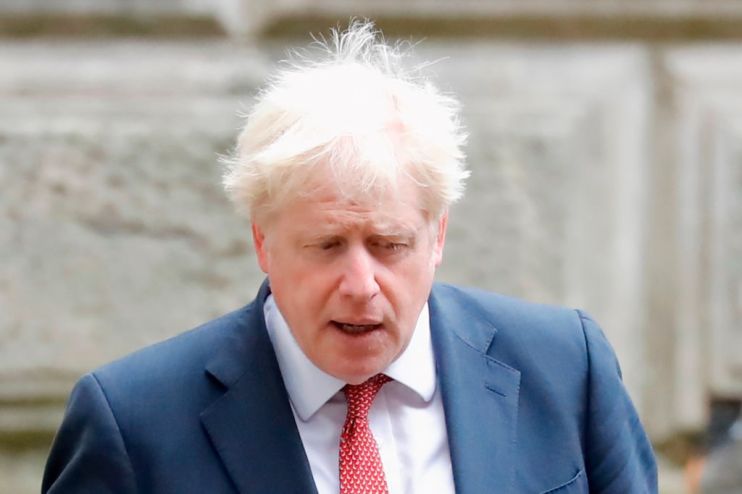Boris Johnson says a no-deal exit from EU would be ‘a good outcome’

Boris Johnson has said leaving the post-Brexit transition period without a trade deal would be “a good outcome” as he sets 15 October as the deadline to reach an agreement with Brussels.
Johnson said in a statement that “there is no sense” in thinking about negotiating timelines beyond 15 October, but that “there is still an agreement to be had”.
Round eight of negotiations between the UK and EU begin on Tuesday, with the two sides deadlocked over several key issues.
Chief among them being EU fishing access to UK waters and negotiations over business competition regulations known as the level playing field.
Johnson’s chief negotiator David Frost told the Mail On Sunday that the UK would “not blink” and concede on these major issues.
The UK will leave the EU’s customs union and single market on 31 December, but both sides have agreed a deal needs to be done next month for it to be ratified by the European Parliament and to give businesses enough time to prepare.
Before the Open newsletter: Start your day with the City View podcast and key market data
If the UK exits the transition period without a deal with the EU then trade barriers – such as tariffs and quotas on goods – will immediately be erected, leading to increased prices for goods produced in EU countries
Johnson said if there is no agreement by 15 October “then I do not see that there will be a free trade agreement between us, and we should both accept that and move on”.
“We will then have a trading arrangement with the EU like Australia’s,” he said.
“I want to be absolutely clear that, as we have said right from the start, that would be a good outcome for the UK. As a government we are preparing, at our borders and at our ports, to be ready for it.
“We will have full control over our laws, our rules, and our fishing waters. We will have the freedom to do trade deals with every country in the world.”
The biggest barrier between a UK-EU deal is believed to be Brussels’ demands on state aid regulations.
Frost has said that Brussels wants the UK to match the EU’s rules on how much financial support the government can give to businesses.
This a position that is seen as untenable by Downing Street as it wants to have the freedom to supply the private sector with state subsidies as the economy recovers from the coronavirus crisis.
The EU is also asking the UK to match regulations on a number of other areas, such as labour and environmental laws, with Brussels saying there needs to be a level playing field for businesses on both sides of the channel for a deal to be agreed.
In return for matching regulations in this level playing field the UK would be able to continue zero-tariff trade with the EU.
Johnson said a deal could be reached if the EU concedes on this point, along with its demand to maintain the same level of fishing access to British waters as it had when the UK was a member of the bloc.
“Even at this late stage, if the EU are ready to rethink their current positions and agree this I will be delighted,” he said.
“But we cannot and will not compromise on the fundamentals of what it means to be an independent country to get it.”
Johnson’s hard line may be a part of the UK’s negotiating strategy as it seeks to draw last minute concessions from EU chief negotiator Michel Barnier.
Frost said today that a large part of negotiations so far had been showing Barnier and his team that they would not be pushed around like negotiating teams under Theresa May.
Syed Kamall, academic research and director at the free market think tank The Institute for Economic Affairs, said negotiating with the EU required a certain degree of obstinacy.
The former MEP said: “Experienced negotiators will tell you that you have to give the impression that you are prepared to walk away from negotiations, whether it be a contractor who gives you an outrageous initial quote or negotiations between trade unions and company bosses.
“During my years in Brussels, I saw the European Parliament walk away from negotiations with the European Commission and the Council, only to be called back to the table at a later date and resume negotiations to reach a deal.”
Marley Morris, associate director at the left-leaning Institute for Public Policy Research (IPPR) think tank, said a no-deal exit would be a “major economic set back”.
“The UK and EU negotiating teams urgently need to adapt a more flexible approach and seek a compromise,” he said.
“On the key sticking point of the negotiations – the arrangements for state aid – the UK should outline details of its own proposed approach to state aid policy to help break the current deadlock.”